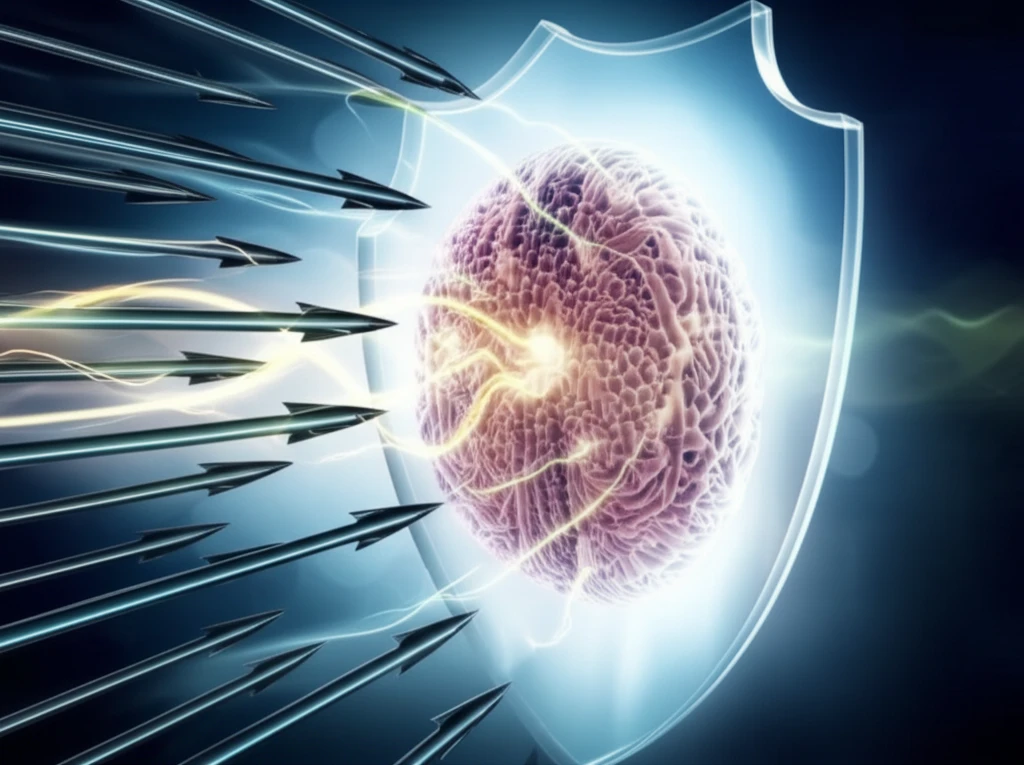
CD82: The Unsung Hero in the Fight Against Cancer
"Unlocking the secrets of CD82 and its crucial role in controlling cancer's spread through Wnt signaling."
Metastasis, the spread of cancer from its primary site to other parts of the body, remains one of the most significant challenges in cancer treatment. The process involves a complex series of steps, starting with cancer cells detaching from the original tumor, invading surrounding tissues, and eventually establishing new tumors in distant organs. Researchers are constantly seeking to understand and disrupt these processes to improve patient outcomes.
Cell adhesion molecules, like E-cadherin and its associated proteins, play a critical role in maintaining tissue structure and preventing cancer cells from breaking away. One such molecule, CD82 (also known as KAI-1), has garnered attention for its potential role in suppressing metastasis. Recent studies have revealed that CD82 is involved in cell adhesion and can influence the behavior of cancer cells. But what exactly is CD82, and how does it work?
CD82, a member of the transmembrane 4 superfamily (TM4SF), is a protein found on the surface of cells. It has been shown to influence cell adhesion, migration, and signaling pathways. Specifically, CD82 has been found to interact with E-cadherin, a key protein in maintaining cell-to-cell connections. By modulating E-cadherin function, CD82 can help stabilize cell adhesion and prevent cancer cells from detaching and spreading. Understanding how CD82 functions could open new avenues for cancer treatment.
How Does CD82 Control Wnt Signaling and Prevent Cancer Spread?

The Wnt/β-catenin pathway is a critical signaling cascade that regulates cell growth, differentiation, and survival. In cancer, this pathway is often dysregulated, leading to uncontrolled cell proliferation and tumor development. A study published in the International Journal of Oncology shed light on how CD82 interacts with this pathway, offering potential insights into cancer prevention.
- Reduce Frizzled (Fzd) receptor expression: Fzd receptors are essential for activating the Wnt pathway. CD82 significantly decreased the levels of several Fzd receptors (Fzd2, 3, 5, 7, and 9), effectively reducing the pathway's activity.
- Inhibit β-catenin phosphorylation: CD82 downregulated glycogen synthase kinase-3β (GSK-3β) and casein kinase 1α (CK1α), key enzymes that phosphorylate β-catenin, marking it for degradation. By inhibiting these enzymes, CD82 helps stabilize β-catenin in the cytoplasm.
- Promote β-catenin translocation: Instead of allowing β-catenin to enter the nucleus and promote cancer-related gene expression, CD82 encourages β-catenin to move to the cell membrane, strengthening the interaction between E-cadherin and β-catenin.
The Future of CD82 in Cancer Therapy
The evidence is mounting: CD82 is a potent suppressor of cancer metastasis. By controlling cell adhesion and inhibiting key signaling pathways like Wnt/β-catenin, CD82 offers a multifaceted approach to preventing cancer spread. Further research is needed to fully understand the mechanisms by which CD82 exerts its effects and to develop effective therapies that harness its power. Targeting CD82 could be a game-changer in the fight against cancer, offering new hope for patients facing this devastating disease.
